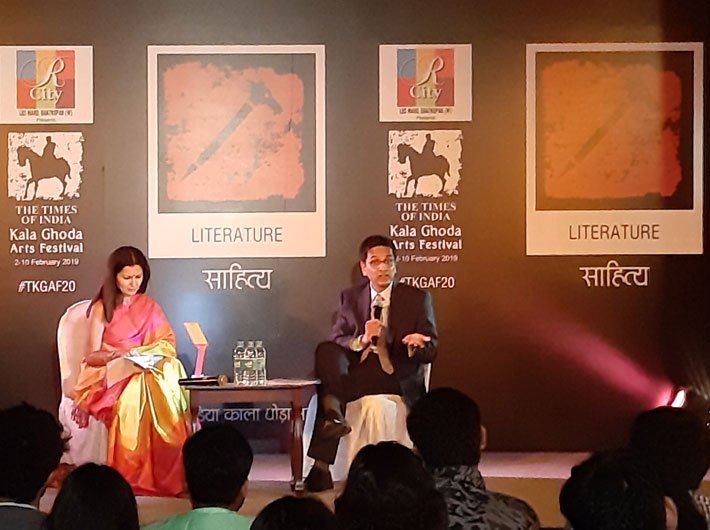There is a huge social prejudice and discrimination in society both in law and beyond law and the path to change society is a difficult process. "It is bound to take time and requires wider social partnership,” said Justice Dhananjay Chandrachud while speaking at David Sasoon Library at the Kala Ghoda Arts Festival on Saturday.
“Every single day there is one case with some odd bearing on feudal, patriarchal set of values that govern our society today. That’s really the divide” said Chandrachud. He was speaking to advocate Jayna Kothari on the simple yet complex implications of Section 377 and the power of the Indian Constitution in safeguarding the society.
Giving the example of evolution of women’s property and inheritance rights, the supreme court judge who has delivered several land mark judgements said: "society gradually accepts change but to accept change each of us must realise the potential which lies within. There that is a grave danger of us citizens discounting limits of our own ability and great opportunity for all of us to believe in ourselves so that when a group of citizens come together that you really push for change.”
Speaking on constitutional morality, Chandrachud said, "constitutional morality is rooted in the constitution. Individual is the focal point of the Indian constitution and it essentially allows each individual to fulfill the yearning of personality and it is not a particular judge in his or her wisdom would design. It is founded on essential facets of the constitution; the preamble, liberty, equality and the autonomy of the individual coupled with our sense of fraternity and sense of compassion which we have for each other. Using these founding pillars you test if a particular law or particular action of the government is consistent with constitutional morality.”
“The courts are supposed to uphold and support values which outlast the winds of electoral change because there are certain abiding, enduring values in our constitution which must live beyond our own lives and that is essentially the role of the court. We have been criticised and it is important that are courts are criticised because that is the way we can reshape test lines of our own logic,” said Chandrachud.
Responding to a question on how responsive the courts will be to social change on issues of LGBT rights like equality, property rights and inheritance, adoption etc, with Section 377 getting decriminalized he said that the Navtej Johar judgement is much broader and based on jurisprudential foundation. “Most judgments of the supreme court speak of the problems on hand but judges do tend to speak in manner that would lay the groundwork for the future as well and let’s hope the future is bright and governed by liberty and equality.”

